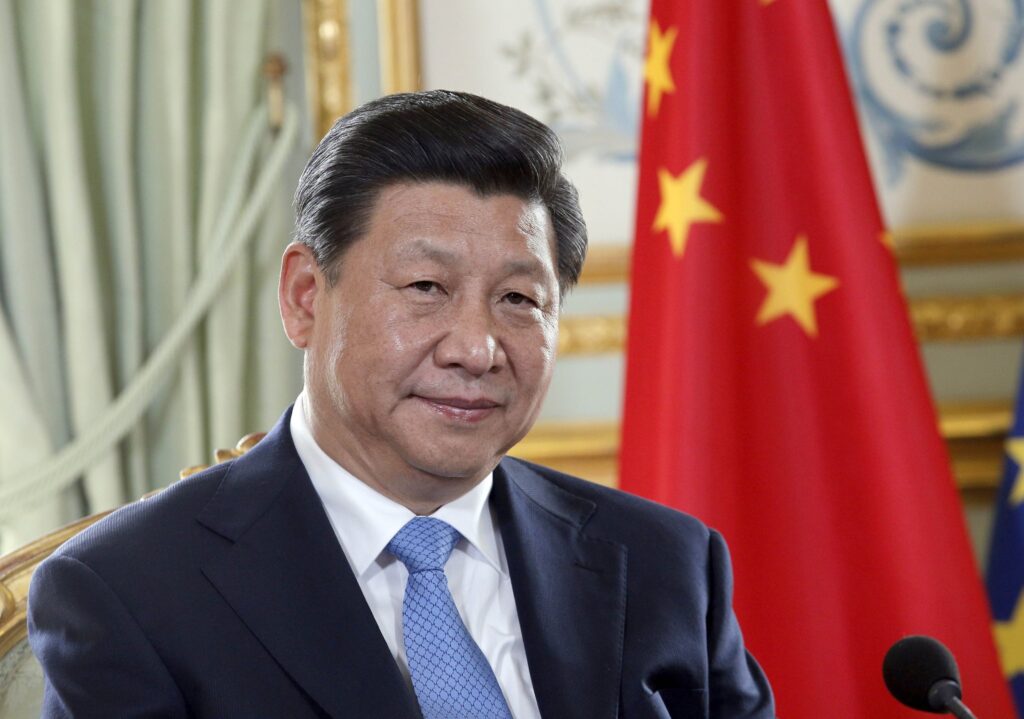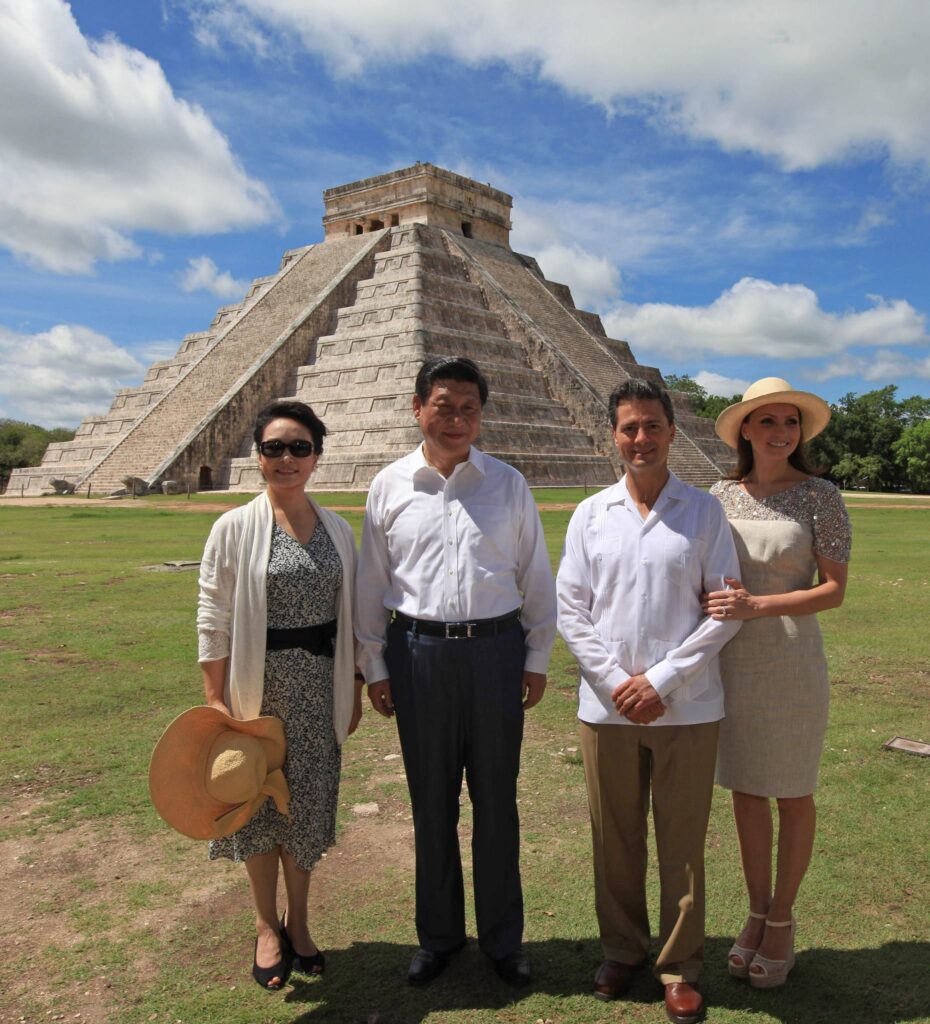Xi Jinping Alter : Introduction
Xi Jinping is a prominent Chinese politician who currently serves as the General Secretary of the Communist Party of China (CPC), the President of the People’s Republic of China, and the Chairman of the Central Military Commission. He was born on June 15, 1953, in Beijing, China.
Who is Xi Jinping?

Xi Jinping is the son of Xi Zhongxun, a highly regarded party official and member of the Communist Party of China. He grew up in privileged circumstances, but his family faced difficult times during the Cultural Revolution, which resulted in his father’s arrest and the subsequent humiliation of their family. Xi Jinping was forced to flee to the countryside, where he lived as a laborer for seven years.
Despite his challenging upbringing, Xi Jinping persevered and pursued higher education. He studied chemical engineering at Tsinghua University in Beijing and later went on to earn a doctorate in Marxist philosophy and ideological education.
Over the years, Xi Jinping has held various political positions in different provinces of China, gaining experience and establishing himself as a rising star within the Communist Party. He became the Party Secretary of Shanghai and later served in the Standing Committee of the Political Bureau of the CPC and as Vice President of China under Hu Jintao. In 2012, he was elected as the General Secretary of the Communist Party, assuming the title of Paramount Leader of China. In 2013, he became the President of the People’s Republic of China.
Significance of his age
Xi Jinping’s age is significant in the context of Chinese politics. Born in 1953, he grew up during a tumultuous period in China’s history. His experiences during the Cultural Revolution shaped his worldview and influenced his approach to governance. As a member of the older generation of Chinese leaders, Xi Jinping brings with him a deep understanding of China’s past and a commitment to preserving the ideals of the Communist Party.
At the same time, Xi Jinping’s age also symbolizes a generational shift within the Chinese leadership. As a leader of the post-Mao generation, he represents a new era of Chinese politics and brings a different perspective to the challenges and opportunities facing China and the world. With his extensive education and political experience, Xi Jinping is well-positioned to lead China through complex domestic and international issues.
II. Frühes Leben und Karriere
Xi Jinpings Geburt und Kindheit

Xi Jinping, der gegenwärtige Präsident der Volksrepublik China, wurde am {Geburtsdatum} in Peking geboren. Er wuchs in einer privilegierten Familie auf, da sein Vater, Xi Zhongxun, ein prominenter chinesischer Politiker war. Während seiner Kindheit erlebte Xi Jinping jedoch eine dramatische Veränderung in seinem Leben.
Auswirkungen der Kulturrevolution auf seine Familie
Während der Kulturrevolution in den 1960er und 1970er Jahren war Xi Jinpings Vater Xi Zhongxun ein Ziel der radikalen kommunistischen Gruppierungen. Xi Zhongxun wurde verhaftet und seine Familie wurde öffentlich erniedrigt. Xi Jinping und seine Familie wurden systematisch schikaniert und bedroht, was zu einer schweren Belastung für die Familie führte. Diese Erfahrungen haben Xi Jinping geprägt und spielen eine wichtige Rolle in seiner politischen Karriere.
Xi Jinpings akademischer Werdegang und politische Laufbahn
Nach dem Abschluss an der Peking-Universität im Jahr 1979 begann Xi Jinping seine politische Karriere als Vizebürgermeister von Xiamen, einer Küstenstadt in der Provinz Fujian. In den folgenden Jahren hatte er verschiedene Führungspositionen in der Provinzverwaltung von Fujian inne, bevor er 2002 zum Parteisekretär der Provinz Zhejiang ernannt wurde. Xi Jinping stieg kontinuierlich in der politischen Hierarchie auf und wurde schließlich im Jahr 2012 zum Generalsekretär der Kommunistischen Partei Chinas und im Jahr 2013 zum Präsidenten der Volksrepublik China ernannt.
Xi Jinpings politische Laufbahn ist geprägt von seiner Politik der Stärkung der KPCh und einer verstärkten Kontrolle über Politik, Medien und das Internet in China. Unter seiner Führung hat China eine restriktivere Haltung gegenüber politischen Dissidenten und eine aggressive Außenpolitik eingenommen.
Weitere Informationen über das frühe Leben und die Karriere von Xi Jinping können Sie auf der Seite seiner Wikipedia-Eintrag finden
III. Politische Positionen und Amtszeiten
Xi Jinping’s Rolle als Generalsekretär der Kommunistischen Partei Chinas
Xi Jinping assumed the position of Generalsekretär (General Secretary) of the Communist Party of China (CPC) in 2012, making him the highest-ranking member of the party. As Generalsekretär, Xi holds significant power and serves as the top leader of the CPC. He has been known for consolidating his power within the party by implementing various policies and crackdowns on corruption. Under his leadership, the party has become more centralized, and Xi has pursued a vision of “Xi Jinping Thought on Socialism with Chinese Characteristics for a New Era.”
Xi Jinping’s Amt as Staatspräsident der Volksrepublik China (Presidency of the People’s Republic of China)
Xi Jinping was appointed as the President of the People’s Republic of China in 2013. Prior to this appointment, the presidency had a two-term limit for the president. However, in 2018, the Chinese National People’s Congress approved a constitutional amendment that removed term limits for the president and vice president, allowing Xi Jinping to serve beyond the traditional two-term limit. Xi’s presidency has been marked by an increased concentration of power, and he is often regarded as one of the most powerful leaders in the world.
IV. Kritik und Kontroversen
Kritik an Xi Jinpings Machtkonzentration

Xi Jinping’s consolidation of power has raised concerns among critics and political analysts. Some of the main criticisms include:
- Lack of institutional checks and balances: Xi’s centralization of power has weakened China’s political institutions and eliminated or marginalized potential sources of opposition or dissent within the party. This has led to a concentration of power in the hands of one individual, which can be prone to abuse and lack accountability.
- Risk of policy miscalculations: With less diverse input and limited collective decision-making, there is a higher risk of policy miscalculations and a lack of different perspectives. Without robust checks and balances, Xi’s decisions may not be subject to sufficient scrutiny, leading to potentially detrimental consequences for both domestic and foreign policies.
- Stifling of political dissent: Xi’s administration has tightened control over civil society, media, and the internet, leading to a shrinking space for political dissent and free expression. Critics argue that this has created a climate of fear and self-censorship, suppressing alternative voices and limiting democratic participation.
Xi Jinpings Umgang mit Minderheiten und Menschenrechtsverletzungen
Xi Jinping’s policies towards minority groups, particularly the Uighur Muslims in Xinjiang, have come under international scrutiny. The Chinese government has been accused of committing human rights violations, including forced labor, mass detentions, and cultural assimilation in the region. Some key concerns and criticisms include:
- Human rights abuses in Xinjiang: Reports suggest that the Chinese government has detained over a million Uighur Muslims in re-education camps, subjected them to forced labor, and imposed strict surveillance measures. These actions have raised concerns about violations of religious freedom, cultural rights, and personal liberties.
- Restrictions on freedom of expression: The Chinese government has also faced criticism for cracking down on dissent, including journalists, lawyers, activists, and human rights defenders. Critics argue that these repressive measures stifle freedom of expression and undermine the rule of law.
- Limited accountability and transparency: The lack of transparency and accountability regarding these human rights abuses has been a source of concern. Critics argue that the Chinese government should allow independent investigations, grant access to international human rights organizations, and ensure the protection of civilians’ rights.
Auswirkungen von Xi Jinpings Wirtschafts- und Außenpolitik
Xi Jinping’s economic and foreign policies have also generated debates and controversies. Some key impacts and concerns include:
- Economic reforms and state control: Xi’s economic policies have emphasized state control and the role of state-owned enterprises in key sectors of the economy. Critics argue that this approach may hinder market competition, limit private sector growth, and create inefficiencies in resource allocation.
- Belt and Road Initiative: Xi’s signature foreign policy initiative, the Belt and Road Initiative (BRI), has attracted both praise and criticism. While some see it as a way to promote economic development and connectivity, others raise concerns about potential debt traps, lack of transparency, and environmental sustainability.
- Regional tensions: China’s assertive stance in territorial disputes in the South China Sea and its growing military presence have raised concerns among neighboring countries and the international community. Critics argue that these actions contribute to regional tensions and have strained China’s relationships with other nations.
It is important to note that these criticisms and controversies reflect a range of perspectives and opinions. The complex nature of Xi Jinping’s leadership and policies requires a nuanced understanding of the various issues at play.
V. Persönliches Leben und öffentliche Auftritte
Xi Jinpings Familie und Ehe mit Peng Liyuan
Xi Jinping wurde am 15. Juni 1953 in Peking geboren und ist der Sohn von Xi Zhongxun, einem hochrangigen Parteifunktionär und Mitglied der Kommunistischen Partei Chinas (KPCh). Xi Jinping wuchs anfangs in privilegierten Verhältnissen auf, bis sein Vater während der Kulturrevolution in Ungnade fiel und die Familie ausgegrenzt wurde. Xi Jinping floh daraufhin mit 15 Jahren aufs Land und arbeitete sieben Jahre lang als Landarbeiter, bevor er ein Studium an der Pekinger Tsinghua-Universität absolvierte.
Xi Jinping war in erster Ehe mit Ke Xiaoming verheiratet, doch die Ehe endete 1982 in Scheidung. Seit 1987 ist er in zweiter Ehe mit Peng Liyuan verheiratet, einer bekannten chinesischen Sängerin und Hochschullehrerin. Die beiden haben eine Tochter namens Mingze. Peng Liyuan ist eine der bekanntesten Interpreten von sogenannten “roten Liedern”, die der Kommunistischen Partei Chinas und der Revolution huldigen.
Xi Jinpings öffentliche Auftritte und Image
Xi Jinping wurde im Jahr 2013 zum Generalsekretär der KPCh und zum Staatspräsidenten ernannt. In seiner politischen Karriere hat er verschiedene Ämter innegehabt, darunter Gouverneur von Fujian und Zhejiang sowie Parteichef in Shanghai. Er gilt als einer der mächtigsten Männer der Welt und hat China während seiner Amtszeit zu einer der größten Wirtschaftsnationen der Welt gemacht.
Xi Jinping wird oft für seine autoritäre Führungsweise und seinen Konzentration von Macht kritisiert. Während seiner Amtszeit hat er die digitale Überwachung der Bevölkerung verstärkt und repressive Maßnahmen gegen Minderheiten wie die Uiguren und die Demokratiebewegung in Hongkong ergriffen. Sein Image wird oft mit dem von Mao Zedong verglichen.
Xi Jinping tritt häufig in Uniform und umgeben von jungen Rekruten auf und singt patriotische Lieder. Seine Frau Peng Liyuan begleitet ihn oft bei offiziellen Anlässen und ist ebenfalls eine bekannte Persönlichkeit in China.
VI. Fazit
Bedeutung von Xi Jinpings Alter für seine politische Karriere
Das Alter von Xi Jinping spielt eine wichtige Rolle in seiner politischen Karriere. Mit 69 Jahren gehört er zu einer älteren Generation von Politikern in China. Das bedeutet, dass er über langjährige Erfahrung und politisches Fachwissen verfügt, was ihm in seiner Führungsposition von Vorteil ist. Sein Alter kann auch als Symbol für Stabilität und Kontinuität gesehen werden, da er schon seit vielen Jahren in der politischen Arena tätig ist. Xi Jinping hat es geschafft, sich innerhalb der Kommunistischen Partei Chinas hochzuarbeiten und eine starke Machtposition zu erreichen. Sein Alter ist ein Zeichen dafür, dass er über genügend Erfahrung und Weisheit verfügt, um das Land zu führen.
Ausblick auf die Zukunft unter der Führung von Xi Jinping
Die Zukunft unter der Führung von Xi Jinping wird von vielen Erwartungen und Herausforderungen geprägt sein. Als einer der mächtigsten Politiker der Welt hat Xi Jinping die Möglichkeit, die politische Landschaft in China und international zu prägen. Es wird erwartet, dass er weiterhin eine Politik verfolgen wird, die darauf abzielt, China als globale Supermacht zu positionieren. Unter seiner Führung wird China wahrscheinlich seine Bemühungen in Bereichen wie Technologie, Wirtschaft und internationalen Beziehungen verstärken. Es wird interessant sein zu sehen, wie Xi Jinping mit den internen und externen Herausforderungen umgeht, die sich in den kommenden Jahren ergeben werden. Sein Alter und seine Erfahrung könnten ihm helfen, kluge Entscheidungen zu treffen und das Land erfolgreich in die Zukunft zu führen.
Overall, Xi Jinping’s age is important in his political career as it showcases his experience and stability. Under his leadership, China is expected to continue its pursuit of global influence and economic growth. It will be interesting to see how he navigates the challenges and opportunities that lie ahead



